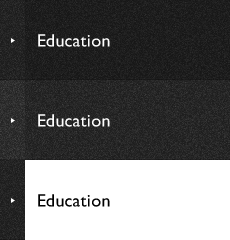The curriculum is designed to equip students with a comprehensive skillset rooted in the systemized knowledge acquired through the Master's Program. This includes the broad theory (multidimensional energy theory) common to the study of energy science, in addition to advanced expertise in the individual disciplines of physics, chemistry, materials science, mechanical engineering, electrical engineering, information science, and transdisciplinary science and engineering. With the addition of skills to integrate learned theories with data science analytics, the curriculum is tailored to provide students with a range of key abilities essential for success in the energy sector. These include:
1. The ability to discern the underlying nature and universality of energy/information-related phenomena, identify new challenges, and bring them to resolution.
2. The ability to lead the frontier of energy research based on advanced knowledge and strong ethical awareness.
3. The ability to organically integrate diverse findings in energy science and informatics from the perspective of each specialization for further application and development.
4. The ability to build human networks in the energy sector, and to demonstrate international leadership.
Specifically, students will sharpen their ability to identify and solve problems, and to develop research skills with a focus on Research Seminars and doctoral dissertation research. They will also cultivate leadership skills and internationally effective cultural skills, as well as communication skills, by taking Humanities and Social Science Courses and Career Development Courses in addition to Major Courses such as International Academic Presentation.
-
- Humanities and Social Science
- Liberal Arts courses for cultivating internationally useful cultural skills that form the background of energy research.
-
- Career Development Courses
- Liberal Arts and Basic Science Courses that cultivate leadership and communication skills.
-
- Major Courses
- Specialized lectures for gaining a more practical, application-oriented perspective based on energy theory and data science learned in the Master's Program. Students also strive for improved presentation skills that are internationally effective.
-
- Research Seminars
- Research Seminars and literature reviews are conducted to support students in their doctoral dissertation research.
*2Indicates the standard model where the Doctoral Program is completed in three years.
. Any information published on this site will be valid in relation to Science Tokyo.


